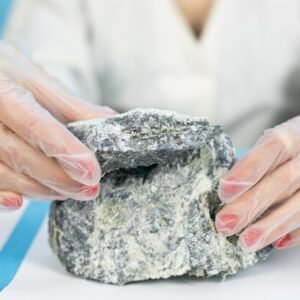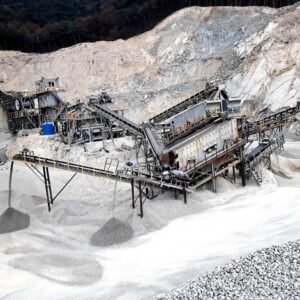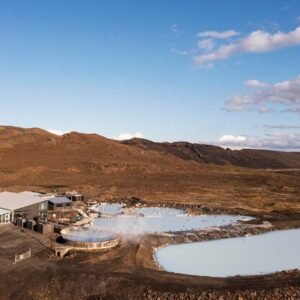Earthing plays a critical role in electrical safety and system stability. Proper grounding ensures the dissipation of electrical surges and faults, protecting people and equipment. Among the various compounds used for earthing, bentonite and marconite are two prominent options. But which one should you choose for your specific needs? This blog compares bentonite and marconite in terms of composition, performance, cost-effectiveness, and applications, helping you make an informed decision.
What is Bentonite?
Bentonite is a naturally occurring clay formed from volcanic ash. Known for its exceptional water-absorption and swelling properties, bentonite creates a low-resistance path for electrical currents when used in earthing systems. It is a cost-effective and eco-friendly material widely utilized in electrical grounding.
Types of Bentonite:
- Sodium Bentonite: High swelling capacity and excellent water absorption.
- Calcium Bentonite: Lower swelling capacity but more stability in certain applications.
Learn more about sodium vs calcium bentonite.
What is Marconite?
Marconite is a synthetic material specifically designed for earthing. It is a conductive aggregate that, when mixed with water, forms a concrete-like compound with low electrical resistance. Marconite offers superior conductivity, making it ideal for high-performance earthing systems.
Key Features of Marconite:
- High conductivity
- Non-corrosive and non-degradable
- Stable in harsh environments
Comparison Between Bentonite and Marconite
Bentonite is a natural clay primarily composed of volcanic ash. It relies on moisture to maintain its conductivity, making it a cost-effective option for standard earthing systems. On the other hand, marconite is a synthetic material engineered for consistent and superior conductivity. Unlike bentonite, it does not depend on moisture levels and is highly durable, making it suitable for industrial and high-performance applications.
Bentonite is eco-friendly, widely available, and budget-friendly, whereas marconite excels in durability and low maintenance, albeit at a higher cost. Choosing between the two depends on factors like budget, soil conditions, and long-term requirements.
Applications of Bentonite
- Standard Earthing Systems Bentonite is widely used in general earthing applications due to its affordability and ease of availability.
- Soil Conditioning Its water-retention properties make it an excellent soil conditioner for improving conductivity.
- Lightning Protection It forms an effective grounding medium for dissipating lightning strikes.
Discover bentonite manufacturers in India.
Applications of Marconite
- High-Performance Earthing Ideal for environments where low resistance and long-term stability are critical.
- Harsh Conditions Performs exceptionally well in areas with rocky, sandy, or chemically aggressive soil.
- Industrial and Commercial Projects Widely used in industries like telecommunications, railways, and oil and gas.
Advantages of Bentonite for Earthing
- Cost-Effective: Bentonite is significantly cheaper than marconite, making it suitable for budget-conscious projects.
- Eco-Friendly: A natural material that does not harm the environment.
- Easy Availability: Sourced from abundant deposits worldwide.
Limitations:
- Performance depends on consistent moisture levels.
- May degrade over time in extreme conditions.
Advantages of Marconite for Earthing
- Superior Conductivity: Offers better performance, especially in dry or challenging soils.
- Durability: Non-degradable and requires minimal maintenance.
- Versatility: Suitable for a wide range of applications, from industrial to commercial setups.
Limitations:
- Higher upfront cost.
- Limited availability compared to bentonite.
Choosing Between Bentonite and Marconite
When deciding between bentonite and marconite, consider the specific requirements of your project. If budget constraints are a significant factor, bentonite provides a cost-effective solution. However, for environments with challenging soil conditions or projects demanding long-term stability, marconite is the better choice. Industrial and commercial projects often favor marconite for its superior performance, while bentonite is ideal for general-purpose grounding.
Combining Bentonite and Marconite
In certain cases, combining bentonite and marconite can optimize performance. For instance, using bentonite for its moisture-retention properties and marconite for its conductivity creates a balanced and efficient earthing solution.
Environmental Impact
Bentonite is an eco-friendly material that decomposes naturally over time, making it a sustainable choice for earthing. Marconite, although synthetic, is stable and does not leach harmful substances into the soil, ensuring environmental safety.
Conclusion
Both bentonite and marconite have their unique strengths and applications. Bentonite is a cost-effective and eco-friendly option suitable for standard earthing systems. On the other hand, marconite offers superior conductivity and durability, making it ideal for high-performance and industrial applications. By understanding your project’s specific requirements, you can choose the right earthing compound to ensure safety and efficiency.
For high-quality bentonite products, visit CMS Industries.







